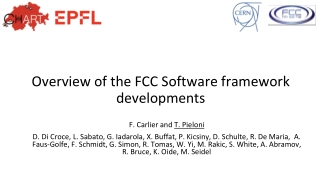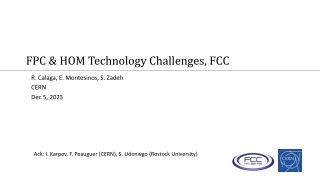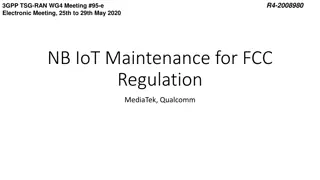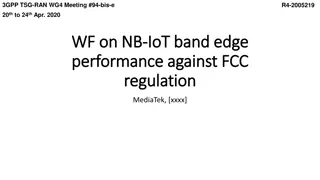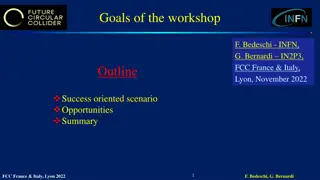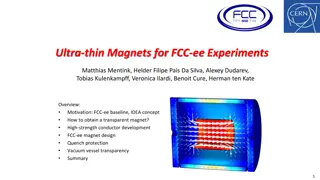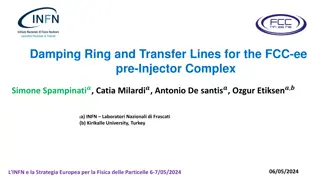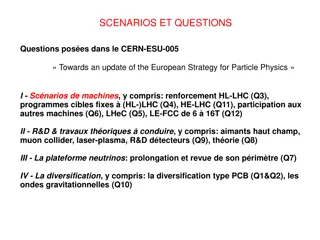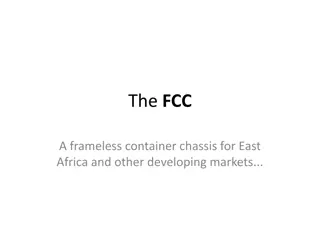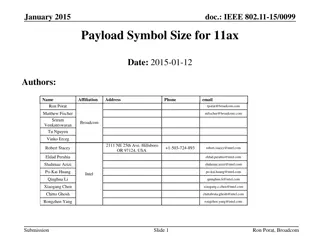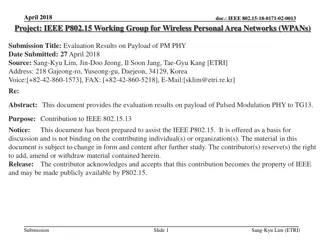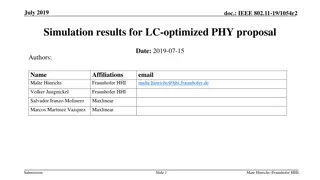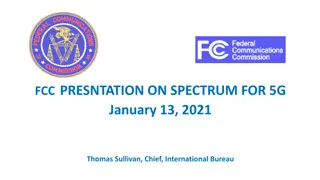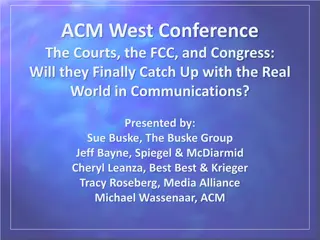
FCC Licensing and Role in Satellite Payload Review Process
Learn about the Federal Communications Commission (FCC) licensing process for non-governmental satellites in the U.S., including the types of licenses issued, regulatory considerations, operational requirements, and the legal framework. Understand the FCC's role in ensuring compliance with satellite licensing requirements through enforcement advisories. Contact the Space Bureau at the FCC for more information.
Download Presentation

Please find below an Image/Link to download the presentation.
The content on the website is provided AS IS for your information and personal use only. It may not be sold, licensed, or shared on other websites without obtaining consent from the author. If you encounter any issues during the download, it is possible that the publisher has removed the file from their server.
You are allowed to download the files provided on this website for personal or commercial use, subject to the condition that they are used lawfully. All files are the property of their respective owners.
The content on the website is provided AS IS for your information and personal use only. It may not be sold, licensed, or shared on other websites without obtaining consent from the author.
E N D
Presentation Transcript
Federal Communications Commission (FCC) Licensing and Role in Payload Review Process
U.S. FCC Satellite Licensing and Rules The U.S. FCC licenses non-governmental satellites that are utilizing radiocommunications. FCC issues three types of licenses for satellite operations amateur, experimental, and Part 25 (which are typically commercial). All three types of licenses require submission of information concerning radiofrequency and orbital technical parameters, an orbital debris mitigation plan, and draft International Telecommunication Union (ITU) filing materials. As part of its regulatory review the FCC considers whether the "public interest" would be served by a particular license grant. Licenses often include conditions, including conditions requiring that operations must be consistent with what is described in the submitted information. The FCC rules also include specific operational requirements.
U.S. FCC Satellite Licensing Legal Framework A license is required for deployment and operation of satellite- based services by a non-federal operator. Section 301 of the Communications Act of 1934, as amended, prohibits the use or operation of a radio frequency station except in accordance with a Commission-granted authorization. Section 25.102(a) of the FCC s rules necessitates FCC approval for the operation of energy or communications or signals by space or earth stations [satellites or ground stations]. Further, licensees must comply with all conditions placed on their licenses.
FCC Enforcement Advisory Satellite Licensing (2018) In 2018, the FCC released an Enforcement Advisory alerting the industry that compliance with satellite licensing requirements is mandatory. Launch service providers should be aware that a satellite integrated into a launch vehicle or deployment device without a current FCC authorization may need to be removed from that vehicle or deployment device if the satellite operator s application for an FCC authorization is not acted upon favorably, or for various reasons cannot be granted within a time frame consistent with the launch schedule. Launch service providers should exercise particular caution if a satellite operator indicates that it is relying on several possible alternative jurisdictions for radio-frequency approval, or is otherwise altering its mission to obviate the need for radio-frequency approval, particularly at late stages of launch preparations. https://docs.fcc.gov/public/attachments/DA-18-368A1.pdf
Space Bureau United States Federal Communications Commission satinfo@fcc.gov

